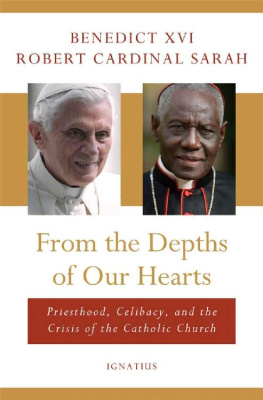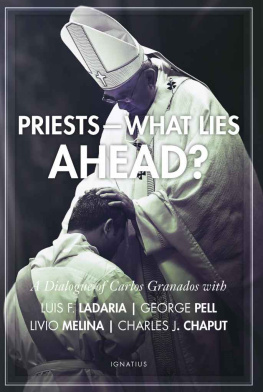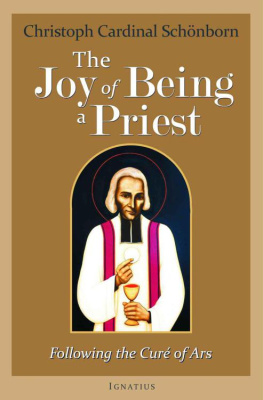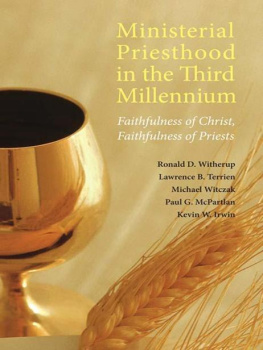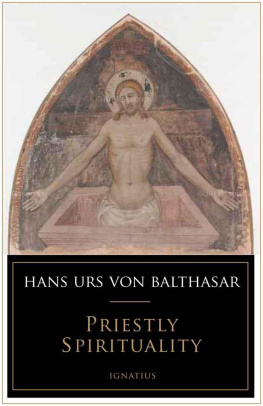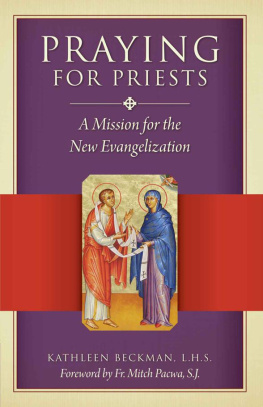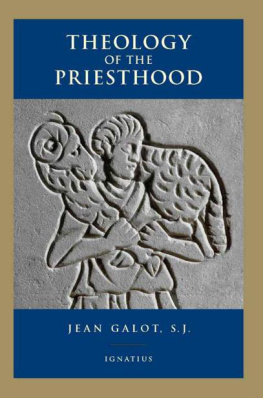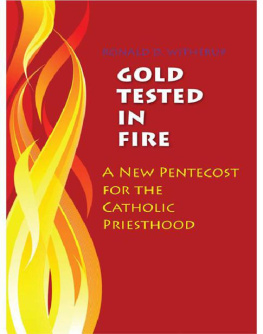
Priesthood in Crisis
[One Priests Experience]
Father Matthew Despard
I shall rescue my sheep from their mouths; they will not prey on them any more.
[Ezekiel 34: 10]
Copyright Fr. Matthew Despard.
The right of Fr. Matthew Despard to be identified as the author of this work has been asserted by him in accordance with the Copyright, Designs and Patents Act. 1998
This book is sold subject to the condition that it shall not, by way of trade or otherwise, be lent, resold, hired out or otherwise circulated without the publishers prior consent in any form of binding or cover other than that in which it is published and without a similar condition including this condition being imposed on the subsequent publisher.
PREFACE
This is a book that I do not want to write . The Church is already reeling from the horrific child abuse scandals in America. Priests in Ireland, even as I write, are being imprisoned, bishops are resigning, and the Pope himself has had to intervene in the wake of the Ferns, the Ryan and the Murphy reports which have left the faithful confused and angry, and the Irish Church humbled and ashamed. And today I hear appalling stories about years of child abuse carried out by Jesuit colleges in Germany. The last thing the Church in Scotland needs is yet more opprobrium heaped upon it because of the behaviour of some of its priests. Why, then, do I choose to write a book that will do precisely that?
I repeat, I do not want to write this book. I write it more in sorrow than in anger. I write it, to a degree, out of the pain of my own victimhood. But more than anything, I write it because it must be written. The over-riding commonality that followed the reports on child abuse within the Catholic Church in Ireland, was the censure that fell upon the hierarchy and, indeed, upon the ordinary priests, because so many of them had remained silent in the face of this evil. Edmund Burke once wrote that the only thing necessary for evil to triumph is for good men to do nothing. How many children in America would have been saved a life of wretchedness and misery if good priests had recognised and reported the behaviour of colleagues for the evil that it was? How many children in Ireland might have been saved? Is it any wonder that the wounds of the victims remain open and raw years after their abuse, when they read, day after day, of the cover-ups, of the shocking and callous protection of the abusers and the disregard of the suffering of the victims?
How, then, can I remain silent when for years I have been aware of a growing corruption in the priesthood which I love and to which I have devoted my life? How can I remain silent when I have many times been made aware of the loss of good young men to the priesthood because of an evil that pervades even our very seminaries? On 1 st April, 2010, Fr. Chris Hayden wrote an article in The Irish Catholic (one of Irelands leading Catholic newspapers) entitled: Shall the Good be Silent? Essentially he was asking the question: how do priests in the front line of ministry register their protests when they come across unconscionable failures of Church authorities? He goes on to make the point that
We priests generally see through the myth of crozier-wielding invulnerability but I think we need to feel that we have some moral courage. So, what is our protest? What form does it take? Of course there is need to put things into words, in accordance with ability, sensitivity and circumstance. But we should not allow ourselves to be painted too easily into the mean little corner called moral cowardice.
Pope Benedict tells us that we must speak the truth in love but that it must be spoken. Knowing what I know, experiencing what I have experienced, I can no longer remain silent. What I write will impact adversely upon the Catholic Church in Scotland and upon my own diocese in particular. I grieve for that. I have tried, time and time again, and in various different ways, to address the situation with the hierarchy but I have achieved nothing. Instead I brought judgement upon myself and levels of intimidation that I have had to fight for years. I now have no choice but to bring to light serious defects in sections of the Scottish priesthood in the hope that after the inevitable scandal has run its course, the result will be a stronger, more spiritual priesthood to serve our Church and its people.
Matthew Despard.
2010
CONTENTS
Prologue
PART ONE: THE PRESENT
Chapter One Accusation
Chapter Two Veiled Warning
Chapter Three Formal Complaint
:Chapter Four The Facts
Chapter Five The Bishops Letter
Chapter Six Meeting with the Bishop
PART TWO: THE PAST
Chapter Seven Finding My Vocation
Chapter Eight Alexian Brothers
Chapter Nine Life in the Seminary
Chapter Ten A Global Perspective
Chapter Eleven Early Ministry
Chapter Twelve My Troubles Begin
Chapter Thirteen The Army: Fallingbostel
Chapter Fourteen The Army: Leaving Germany
Chapter Fifteen The Army: Catterick
Chapter Sixteen Return to Parish Life
PART THREE: BACK TO THE PRESENT
Chapter Seventeen My Life Today
Chapter Eighteen Apostasy
Chapter Nineteen Creeping Secularisation
Endpiece
PART ONE
THE PRESENT
Chapter One
Accusation
On the 9 th January 2010, I received a telephone call from the chancellor of the Motherwell diocese in Scotland. The chancellor is usually a priest who looks after the administration of the diocese from the bishops office. In this particular case, however, the chancellor was a layman. Despite the fact that I am the parish priest of the St. John Ogilvie parish, the phone call was short, almost curt. He informed me that a female parishioner had sent an email to the diocesan office, the substance of which was a complaint against me and he wanted to know if I would care to comment on it. He went on to tell me that this email had been followed by a visit to the diocesan office by the lady and her husband and that they were with the chancellor even as he was speaking. I asked for details of the complaint but I was told nothing more. I told him that I could not comment on something I was not allowed to see and asked him to send me a copy of the email. Although he initially agreed to do so, one was never sent. I phoned him about it a day or two later but he told me that no copy would be forthcoming because the parishioner did not wish me to see it.
I reflected on this situation for a day or two, knowing that I was guilty of no wrong-doing but wondering why the chancellor had been so abrupt and what the essence of the complaint might be. I felt that the chancellors treatment of me was not only disrespectful but that he was clearly behaving as if he fully believed I was guilty of some serious malfeasance.
What is significant here is that in terms of social justice, in terms of my human rights, in terms even of national and international law, the bishop should have immediately sent for me, shown me the email and asked me for my response to it. Apart from law and rights, however, it has always been traditional practice, considering how often priests are accused maliciously by parishioners with a grudge, that the priest is approached by a superior, informed of the complaint and given an opportunity to respond about the truth or otherwise of its contents. For me, that never happened.
Knowing the diocesan office as I do, and the manner in which it operates, I further believed that the original email had been sent, not to the chancellor but to the bishop. Unhappy with the entire situation, I decided, on the 15 th January, to write to the chancellor for details of the accusation. I reminded him of our earlier phone conversations and continued,
Next page

